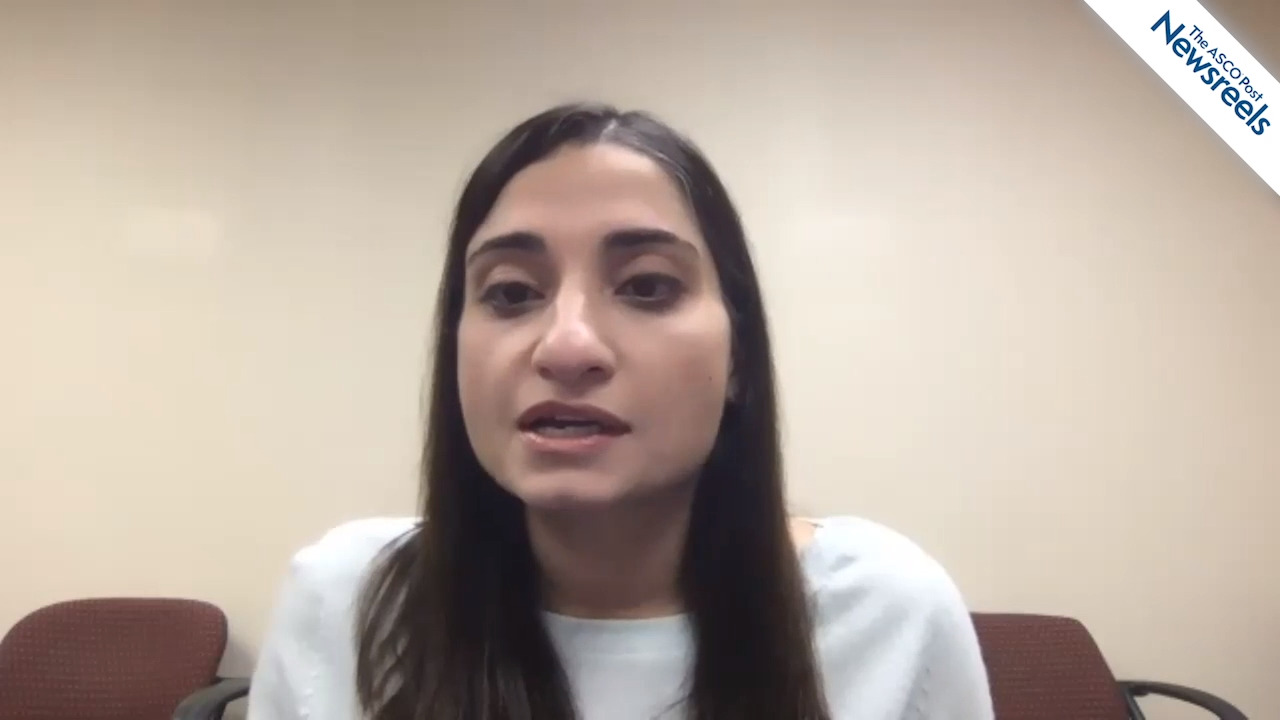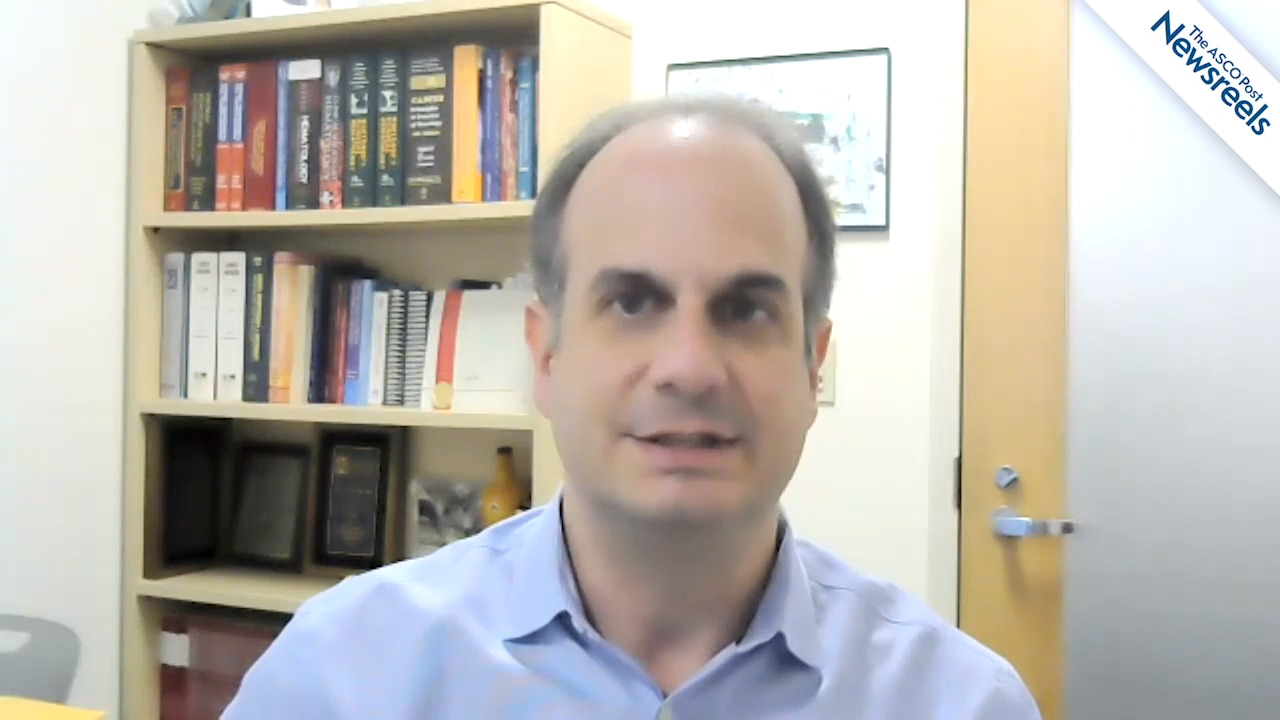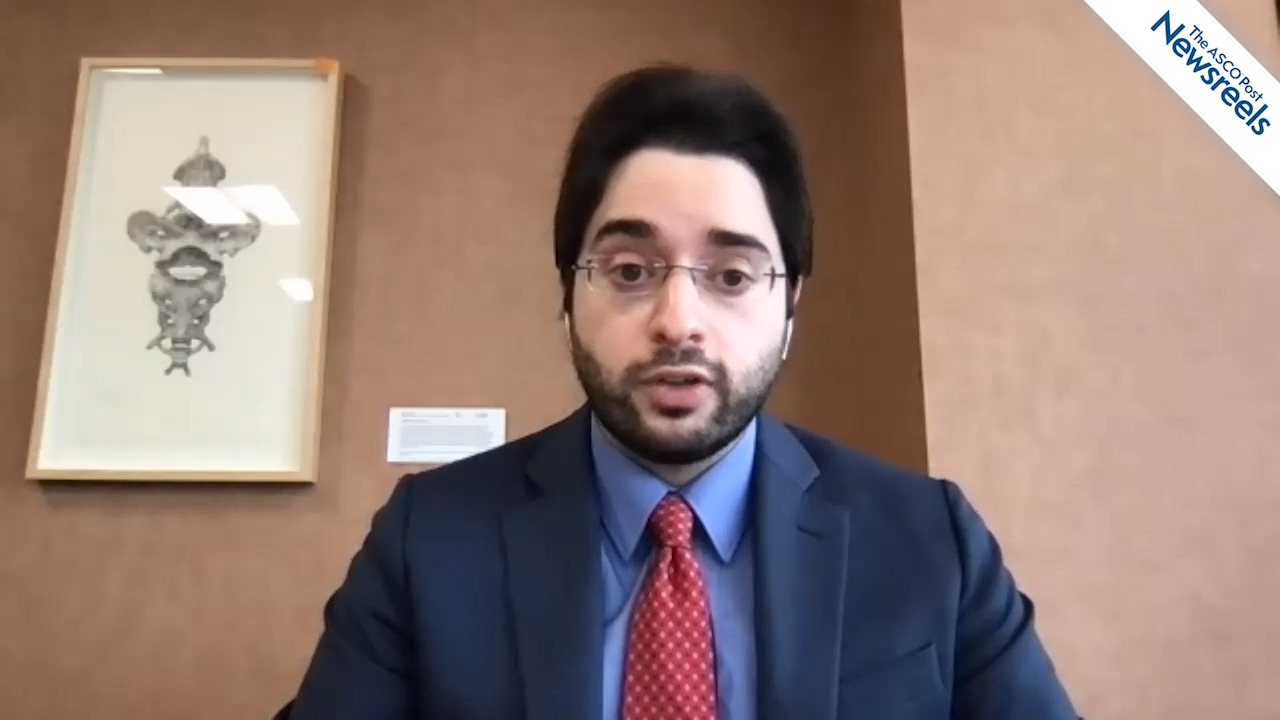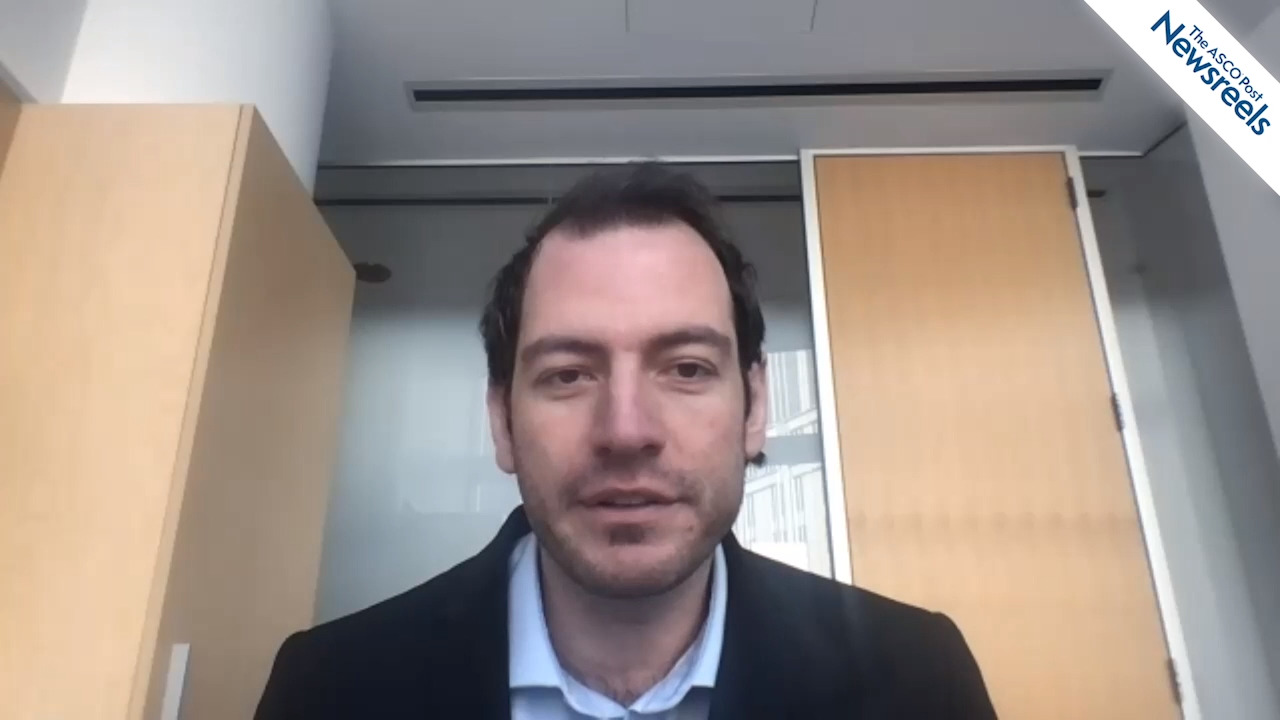Jyoti Nangalia, MBBChir, on MPN: A New Paradigm for the Development of Blood Cancer?
2020 ASH Annual Meeting & Exposition
Jyoti Nangalia, MBBChir, of Wellcome Sanger Institute and the University of Cambridge, discusses how her team used large-scale whole-genome sequencing to precisely time the origins of a blood cancer and measure how it grew. The information could provide opportunities for early diagnosis and intervention (Abstract LBA-1).
The ASCO Post Staff
Sara Zarnegar-Lumley, MD, of Vanderbilt University Medical Center, discusses an analysis of a large cohort confirming the age-associated prevalence of IDH mutations in patients, across the age spectrum, with acute myeloid leukemia and therapeutic implications. IDH-mutated genes were found to co-occur frequently with other mutations, some of which favorably impact outcomes in patients younger than 60 (Abstract 388).
The ASCO Post Staff
Corey Cutler, MD, MPH, of Dana-Farber Cancer Institute, discusses results from a multicenter trial that compared reduced-intensity allogeneic hematopoietic cell transplantation to hypomethylating therapy or best supportive care in patients aged 50 to 75 with advanced myelodysplastic syndromes (Abstract 75).
The ASCO Post Staff
Hassan Awada, MD, of the Taussig Cancer Institute, Cleveland Clinic Foundation, discusses the use of newer machine-learning techniques to help decipher a set of prognostic subgroups that could predict survival, thus potentially improving on traditional methods and moving acute myeloid leukemia into the era of personalized medicine (Abstract 34).
The ASCO Post Staff
Christian Marinaccio, PhD Candidate, of Northwestern University, describes research he is conducting in the laboratory of John D. Crispino, PhD, which shows the loss of the tumor suppressor gene LKB1/STK11 facilitates progression of myeloproliferative neoplasms to acute myeloid leukemia (Abstract 1).
The ASCO Post Staff
Ann-Kathrin Eisfeld, MD, of The Ohio State University Comprehensive Cancer Center, discusses SEER data showing that patients with acute myeloid leukemia who are Black and younger than age 60 may have poor survival outcomes, a disparity that should be addressed and further studied to establish molecular risk profiles (Abstract 6).





